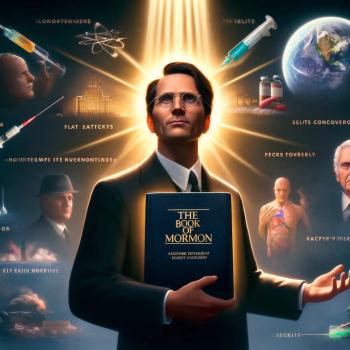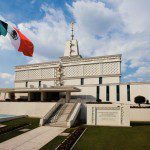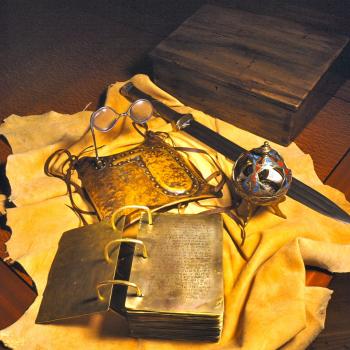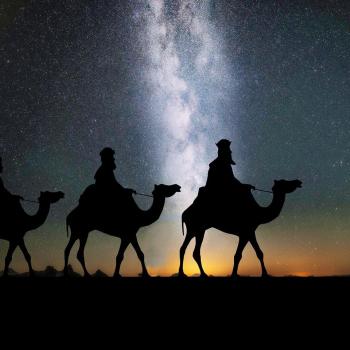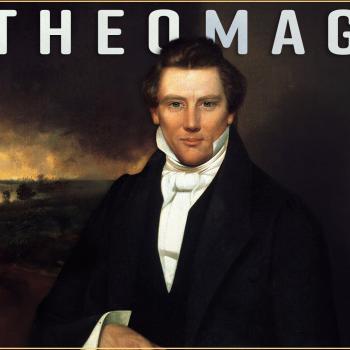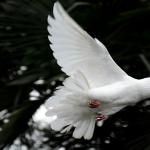Some weeks ago, I had the opportunity to experience the 2023 Christmas Concert by the Tabernacle Choir at Temple Square, the world-famous singing group’s annual holiday celebration. The grand stage was adorned with old-world Christmas decor, creating an ambiance that harkened back to Christmases long past. The centerpiece of the evening featured Broadway star Michael Maliakel, whose deep, resonant voice filled the elegant concert hall. Accompanying him was the talented Lesley Nicol, known for her role in “Downton Abbey,” who brought a touch of theatrical charm and a warm, light-hearted wit to the stage.
The Tabernacle Choir has been a brand ambassador for The Church of Jesus Christ of Latter-Day Saints (LDS) since the choir’s inception in 1847, just after the pioneers arrived in the Salt Lake Valley. The choir, originally a small group of volunteer singers mainly from Wales, quickly evolved into a distinguished vocal ensemble. These early Welsh settlers hailed from a land deeply rooted in choral traditions, bringing with them a rich legacy of vocal harmony and hymnody to the New World. The choir gained more prominence in the late 19th and early 20th centuries, performing at the World’s Fair and other significant events.
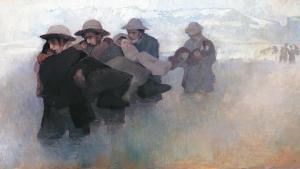
Wales is traditionally referred to as “The Land of Song.” When the pioneers first entered the Salt Lake Valley, Church leader Brigham Young appointed John Parry, a talented former Welsh Anglican preacher, as the choir’s first director. Well-known in North Wales as a poet and scholar of literature, John also had a reputation for a fine voice and played harp, piano and flute.
The arid and remote Salt Lake Valley was thousands of miles from the nearest music store. As printed music was unavailable, the singers had to memorize the words of the songs, and many of the early Welsh members spoke little or no English. Despite these difficulties, the group continued to gain success.
Following one performance, a spectator asked John Parry where his choir had learned to sing and who their teacher had been. He responded that “The hills of Wales were the schoolhouse, and the Spirit of God was the teacher.”
There are many notable LDS hymns that have Welsh origins, including “Guide Us, O Thou Great Jehovah,” known in Welsh as “Cwm Rhondda.” Penned by the Welsh composer John Hughes in 1907, the hymn has since become a favorite piece in many Christian denominations, including the LDS Church. The hymn’s stirring melody and its plea for divine protection and guidance deeply resonate with the LDS belief in personal revelation or continuous guidance from God. “Guide Us, O Thou Great Jehovah” is often sung in LDS congregations during special events and conferences as not only a plea for spiritual guidance, but as a connection to the rich heritage of Welsh hymnody.
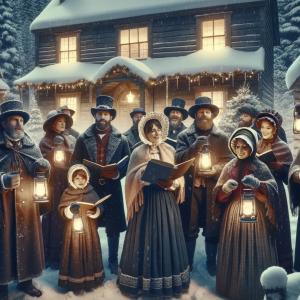
The influence of the Welsh musical heritage is especially heard in the hymnody of most early American churches. Welsh tunes were often adapted to English-language hymns, infusing them with a distinctive melodic character that resonated with American congregations. Notable examples include hymns like “Hyfrydol,” composed by Rowland Hugh Prichard, which has been used for several popular hymns such as “Come, Thou Long Expected Jesus” and “Love Divine, All Loves Excelling.”
My own ancestors made their way to the Salt Lake Valley accompanying the ill-fated Martin Handcart Company. Because the company left later in the year, it became stranded on the snowy Wyoming plains with little food, shelter or clothing for weeks. One of my direct ancestors, 12 year old Nicholas Gourley, was found by rescuers in a grove eating bark off the trees with her little brother George who had lost several of his toes to frostbite. Although they were from Scotland, I like to believe the songs coming from their Welsh cousins along the trail encouraged them forward as they left bloody footprints in the snow on the way to their new homeland.
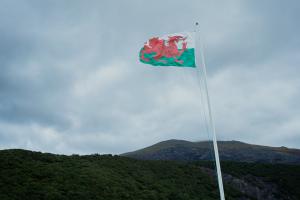
Perhaps one such Welsh cousin in the Martin Company that gave encouragement to Nicholas and George was Thomas Davis Giles, a blind man who played the harp. He suffered greatly crossing the plains, and when trapped in the deadly Wyoming snows with the rest of the company, he lost his baby daughter and then his wife. But what was remarkable about Thomas was his ability to lift people’s spirits. Despite his unthinkable loss, and despite his blindness, he would play the harp to console others who had lost loved ones on the trail. His loving harp music was imbued with the Welsh spirit of love and endurance and became a small beacon of hope for the starving handcart pioneers struggling to reach the Salt Lake Valley in that cold November of 1856.
Today, the Tabernacle Choir at Temple Square incorporates many traditions into its music, but the spirit of Wales still permeates the ensemble’s DNA. And as a recent concert attendee and someone with Welsh ancestry myself, I echo the sentiment that this choir’s schoolhouse was the hills of Wales, and its teacher still is the Spirit of God. And if one listens ever so carefully, they may hear the soft pluck of Thomas’ harp encouraging them through their own life’s challenges.




